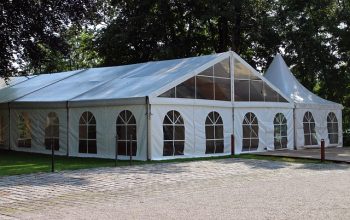Planning successful networking events for local businesses involves setting clear objectives like fostering partnerships or increasing brand visibility, which guide every step from marketing to venue selection and activity choices. Focus on inviting diverse yet cohesive SMEs through targeted research and attendee profiling. Optimize venue and timing based on event formality and attendance trends. Create a well-structured agenda balancing formal activities with informal interactions. Strategically promote events and follow up with personalized messages to foster meaningful relationships within the local business community.
Efficient networking events are crucial for local businesses seeking growth. This article guides you through strategic event planning, from setting clear objectives to promoting and following up post-event. Discover how to identify your target audience, choose the right venue and timing, craft engaging agendas and activities, and leverage promotional strategies. Implement these tips to maximize network building and open new business opportunities for your local enterprise.
- Setting Clear Objectives for Your Event
- Identifying the Right Target Audience
- Choosing a Suitable Venue and Timing
- Crafting an Engaging Agenda and Activities
- Promoting and Following Up Post-Event
Setting Clear Objectives for Your Event

When planning a networking event for local businesses, setting clear objectives is the cornerstone of a successful outcome. Define what you aim to achieve before inviting guests or crafting the agenda. Is it to foster new partnerships, increase brand visibility, or generate leads? Specific goals will guide your marketing efforts, venue selection, and activity choices during the event. For instance, if lead generation is top priority, design interactive workshops or speed-networking sessions that encourage business cards exchanges.
A well-defined objective also helps you measure the event’s success afterward. By comparing against your initial goals, you can assess whether the event met its mark, and identify areas for improvement in future planning. This data-driven approach ensures that each networking event contributes meaningfully to your overall business development strategy for local businesses.
Identifying the Right Target Audience

When planning a networking event for local businesses, identifying the right target audience is crucial. The primary focus should be on the local business community—small to medium-sized enterprises (SMEs) within specific industries or sectors relevant to your event’s theme. Research and create a detailed profile of your ideal attendees: their professions, interests, and potential goals. This targeted approach ensures that the right people are in the room, fostering meaningful connections and enhancing the overall effectiveness of the event.
Event planners should consider using local business associations, chambers of commerce, or industry-specific groups to reach and invite potential participants. By tapping into these networks, you can create a diverse yet cohesive group of attendees who stand to gain from the event’s interactive sessions, workshops, and opportunities for peer-to-peer learning. This strategic audience selection is key to making your networking event a game-changer for local business engagement.
Choosing a Suitable Venue and Timing

When planning networking events for local businesses, selecting the right venue and timing is paramount to ensuring success. The ideal location should be easily accessible, with ample space to accommodate your expected guest list. Consider venues that cater to business interactions, offering conference rooms or areas conducive to conversations. Think about the nature of your event; a quieter cafe might suit informal get-togethers, while a larger hall or coworking space is better for formal networking sessions.
Timing plays a crucial role in attendance and engagement. Choose days and hours that align with local business operations, typically avoiding peak lunch or late evening hours. Consider hosting events on weekdays when professionals are more likely to attend. Additionally, be mindful of any seasonal fluctuations or local holidays that might impact turnout. Efficient planning involves selecting a time that allows for meaningful interactions and networking opportunities among attendees.
Crafting an Engaging Agenda and Activities

When planning a networking event for local businesses, crafting an engaging agenda is key to ensuring success. The event should offer a balance of structured activities and free-flowing conversations, catering to both formal networking and informal interaction. Start with a welcome speech that sets the tone, followed by icebreaker sessions to encourage participation. Incorporate panel discussions or workshops on relevant business topics, providing valuable insights and fostering knowledge exchange.
To enhance engagement, include interactive elements like speed networking rounds, where attendees can quickly connect and share ideas. Additionally, arrange breakout sessions for smaller group discussions, allowing for more intimate conversations and deeper connections. Ensure there are opportunities for casual mingling, such as a well-stocked refreshments area or outdoor spaces, promoting organic networking. The agenda should be designed to keep the energy high, leaving attendees excited and energized by the end of the event, fostering meaningful relationships within the local business community.
Promoting and Following Up Post-Event

Effective networking events require more than just a great turnout; successful promotion and thoughtful follow-up are key to maximizing their impact, especially for local businesses looking to build their reach. Utilize social media platforms, email newsletters, and targeted advertising to spread the word about your event among the relevant audience. Create compelling content that highlights the benefits of attending—such as opportunities to connect with peers, learn from industry experts, or access exclusive resources—to attract attendees who align with your business goals.
Post-event, maintain the momentum by promptly reaching out to participants through personalized messages or follow-up emails. Express gratitude for their time and provide a summary of key takeaways or valuable insights shared during the event. For local businesses, consider offering exclusive discounts or promotions to attendees as a token of appreciation, fostering goodwill, and potentially converting connections into clients. Regularly nurture these relationships by staying in touch, sharing relevant updates, and exploring collaboration opportunities that benefit both parties.
Efficient networking events are powerful tools for local businesses to connect, grow, and thrive. By setting clear objectives, identifying your target audience, choosing the right venue, crafting engaging agendas, and promoting effectively, you can create meaningful connections that open doors to new opportunities. Remember, follow-up is key to nurturing these relationships, ensuring a successful and rewarding event planning experience for all involved.



